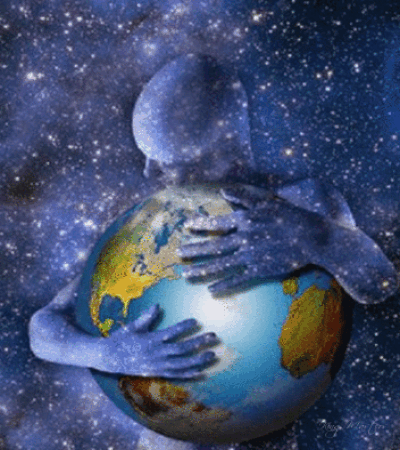Black Folks Practiced/Practice Slavery Too So Why Not Stop Hating Whitey???
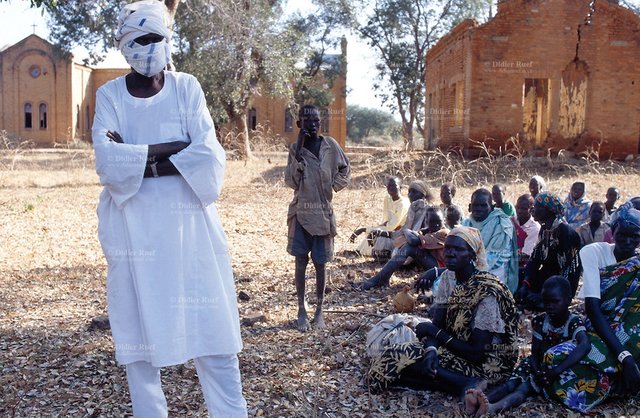
Sudan. South Sudan. Bahr El Ghazal. Mayen Abun. Muslim arab trader with dinka slaves to be bought back by Christian Solidarity International (CSI). © 1999 Didier Ruef @ http://wordpress.clarku.edu/id252-sudan/
The need to express more about the rift between the black and white races in the South has been pressing on me for a while, but i haven't run into anymore sound arguments for my case. This rift seems to be echoing around the world via facebook as demonstrated by a new friend request that i accepted which blames slavery on the white man. Except for my incessant desire to learn, i don't really give a shit; however, i do believe that education is the key to closing rifts so i research and blog. Portions from the video "Africans Started Slavery And Still Practice It", the article "The Real History of Slavery in America You were Never Taught" with statistics, the article
Did Black People Own Slaves? by The Root, meme debunking with the article "Was the First Slave Owner in America a Black Man?", and biblical quotes about slavery will be presented in this blog to point out that white Folks don't have a monopoly on owning slaves. My conclusion will contain a plea for the Sudanese.

Africans Started Slavery And Still Practice It
On my search for information i found an interesting video with some nice information typed up. It says " Africans are still selling slaves.
http://www.scaruffi.com/politics/slav...
Slavery has always been part of African and Arab history, but in recent years it has become a new means in Sudanese warfare. Since 1995 the John Eibner of the Swiss organisation Christian Solidarity International (CSI) has been buying the freedom of about 25,000 slaves for only U$ 50,- per person. These slaves are mainly women and children, captured as war-booty by armed forces of the Government of Sudan.
The Origins of the African Slave Trade
Muslim Arabs hunted, enslaved, tortured and killed ethnic Africans for a millennium. Middle Eastern Muslim Arabs have a history of over 1400 years of human slavery, which even continues today in the Middle East. Arab Muslims controlled, maintained, initiated slavery of ethnic Africans. Islams Arab prophet Muhammad himself brought, kept and sold African slaves.
Today it is politically correct to blame some European empires and the USA for slavery (forgetting that it was practiced by everybody since prehistoric times). But I rarely read the other side of the story: that these first abolish slavery were precisely those countries (especially Britain and the USA). In 1787 the Society for Effecting the Abolition of the Slave Trade was founded in England: it was the first society anywhere in the world opposed to slavery. In 1792 English prime minister William Pitt called publicly for the end of the slave trade: it was the first time in history (anywhere in the world) that the ruler of a country had called for the abolition of slavery. No African king and emperor had ever done so.
The civil rights movement of the 1960's have left many people with the belief that the slave trade was exclusively a European/USA phenomenon and only evil white people were to blame for it. This is a simplistic scenario that hardly reflects the facts.
In most instances, no violence was necessary to obtain those slaves. Contrary to legends and novels and Hollywood movies, the white traders did not need to savagely kill entire tribes in order to exact their tribute in slaves. The kings would gladly sell their own subjects.
This explains why slavery became 'black'. In the middle ages, all European countries outlawed slavery (of course, Western powers retained countless 'civilized' ways to enslave their citizens, but that's another story), whereas the African kingdoms happily continued in their trade. Therefore, only colored people could be slaves, and that is how the stereotype for African-American slavery was born. It was not based on an ancestral hatred of blacks by whites, but simply on the fact that blacks were the only ones selling slaves, and they were selling people of their own race. (To be precise, Christians were also selling Muslim slaves captured in war, and Muslims were selling Christian slaves captured in war, but neither the Christians of Europe nor the Muslims of Africa and the Middle East were selling their own people).
Then the Muslim the trade of African slaves declined rapidly when Arab domination was reduced by the emerging European powers. (Note: Arabs continued to capture and sell slaves, but mostly in the Mediterranean. In fact, Robert Davis estimates that 1.25 million European Christians were enslaved by the "barbary states" of northern Africa. The rate of mortality of those Christian slaves in the Islamic world was roughly the same as the mortality rate in the Atlantic slave trade of the same period.)
The slaves were 'sold' more or less legally by their (black) owners. The legends of European mercenaries capturing free people in the jungle are mostly just that: legends. A few mercenaries certainly stormed peaceful tribes , but that was not the rule. There was no need to risk their lives, so most of them didn't: they simply purchased people. Sub-Saharan Africans never felt like they were one people, they felt (and still feel) that they belonged to different tribes. The distinctions of tribe were far stronger than the distinctions of race. It is also fair to say that, while everybody tolerated it, very few whites practiced slavery: in 1860 there were 385,000 USA citizens who owned slaves, or about 1.4% of the white population (there were 27 million whites in the USA). That percentage was zero in the states that did not allow slavery.
Incidentally, in 1830 about 25% of the free Negro slave masters in South Carolina owned 10 or more slaves: that is a much higher percentage (ten times more) than the number of white slave owners. Thus slave owners were a tiny minority (1.4%) and it was not only whites: it was just about anybody who could, including blacks themselves.
Slavery would have remained common in most African kingdoms until this day: what crushed slavery in Africa was that all those African kingdoms became colonies of western European countries.
https://www.youtube.com/watch?time_continue=42&v=2chjw-F4lZ8
The Real History of Slavery in America You were Never Taught with Statistics
African Slave Trade Worldwide by Century:
1500-1600: 328,000 (2.9%)
1601-1700: 1,348,000 (12.0%)
1701-1800: 6,090,000 (54.2%)
1801-1900: 3,466,000 (30.9%), including
French and Portuguese contract labourers
Source: "Transformations in Slavery", Paul Lovejoy, 2000
By slave-trading country
Portugal/Brazil: 4,650,000
Spain: 1,600,000
France: 1,250,000
Holland: 500,000
Britain: 2,600,000
U.S.A.: 300,000
Denmark: 50,000
Others: 50,000
Total: 11,000,000
Source: "Slave Trade", Hugh Thomas, 1977
Key dates
700: Zanzibar becomes the main Arab slave trading post in Africa
1325: Mansa Musa, the king of Mali, makes his pilgrimage to Mecca carrying
500 slaves and 100 camels
1444: the first public sale of African slaves by Europeans takes place at Lagos, Portugal
1482: Portugal founds the first European trading post in Africa (Elmira, Gold Coast)
1500-1600: Portugal enjoys a virtual monopoly in the slave trade to the Americas
1528: the Spanish government issues "asientos" (contracts) to private companies
for the trade of African slaves
1619: the Dutch begin the slave trade between Africa and America
1637: Holland captures Portugal's main trading post in Africa, Elmira
1650: Holland becomes the dominant slave trading country
1700: Britain becomes the dominant slave trading country
1789: the English Privy Council concludes that almost 50% of the slaves exported from Africa die before reaching the Americas
1790: at the height of the British slave trade,
one slave vessel leaves England for Africa every other day
1807: Britain outlaws slavery
1848: France abolishes slavery
In 1830 about 25% of the free Negro slave masters in South Carolina owned 10 or more slaves: That is a much higher percentage
(ten times more) than the number of
white slave owners.
Thus slave owners were a tiny minority (1.4%)
and it was not only whites: it was just about
anybody who could, including blacks themselves.
Seems that Africa was still willing to sell slaves and there were laws passed and up until the early 1800's because the laws were being broken by slave sellers and slave buyers until they
were threaten with death. "
http://abolition.nypl.org/print/us_constitution/@ http://www.papergenocide.org/the-real-history-of-slavery-in-the-americas-you-were-never-taught.html
Did Black People Own Slaves? : The Root
It seems appropriate to present information from a black author as well.
Henry Louis Gates Jr. put this article together
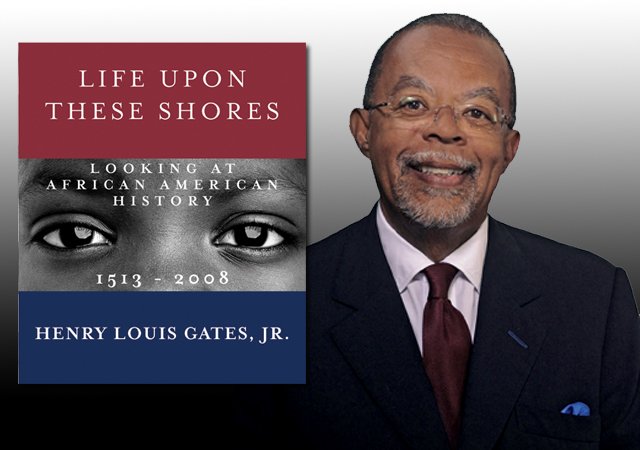
"One of the most vexing questions in African-American history is whether free African Americans themselves owned slaves. The short answer to this question, as you might suspect, is yes, of course; some free black people in this country bought and sold other black people, and did so at least since 1654, continuing to do so right through the Civil War. For me, the really fascinating questions about black slave-owning are how many black 'masters' were involved, how many slaves did they own and why did they own slaves?
...for a time, free black people could even 'own' the services of white indentured servants in Virginia as well. Free blacks owned slaves in Boston by 1724 and in Connecticut by 1783; by 1790, 48 black people in Maryland owned 143 slaves. One particularly notorious black Maryland farmer named Nat Butler 'regularly purchased and sold Negroes for the Southern trade,' Halliburton wrote.
Perhaps the most insidious or desperate attempt to defend the right of black people to own slaves was the statement made on the eve of the Civil War by a group of free people of color in New Orleans, offering their services to the Confederacy, in part because they were fearful for their own enslavement: 'The free colored population [native] of Louisiana … own slaves, and they are dearly attached to their native land … and they are ready to shed their blood for her defense. They have no sympathy for abolitionism; no love for the North, but they have plenty for Louisiana … They will fight for her in 1861 as they fought [to defend New Orleans from the British] in 1814-1815.'
How Many Slaves Did Blacks Own?
So what do the actual numbers of black slave owners and their slaves tell us? In 1830, the year most carefully studied by Carter G. Woodson, about 13.7 percent (319,599) of the black population was free. Of these, 3,776 free Negroes owned 12,907 slaves, out of a total of 2,009,043 slaves owned in the entire United States, so the numbers of slaves owned by black people over all was quite small by comparison with the number owned by white people. In his essay, " 'The Known World' of Free Black Slaveholders," Thomas J. Pressly, using Woodson's statistics, calculated that 54 (or about 1 percent) of these black slave owners in 1830 owned between 20 and 84 slaves; 172 (about 4 percent) owned between 10 to 19 slaves; and 3,550 (about 94 percent) each owned between 1 and 9 slaves. Crucially, 42 percent owned just one slave."
https://www.theroot.com/did-black-people-own-slaves-1790895436
Was the First Slave Owner in America a Black Man?
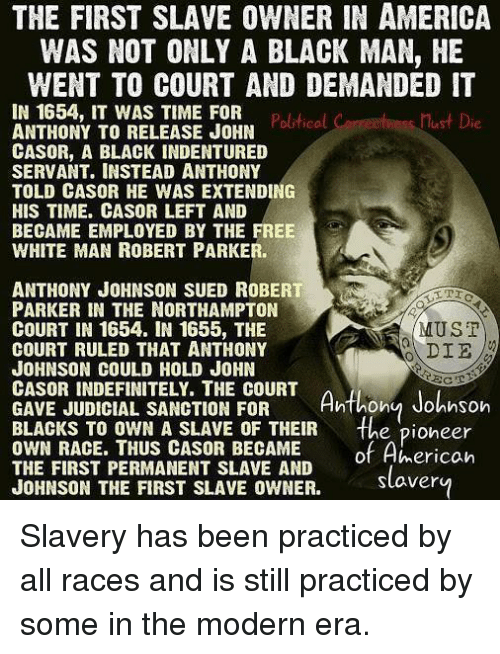
"While the case of Anthony Johnson and John Casor was not the case of the first slave, first slave owner, or first legal slave owner, it might possible have been the first civil case involving slavery, and at the very least is the first known example in the colonies of a black man owning either indenture servants or slaves. Slaves had been here since 1619, and all slaves had been 'legal' slaves (and thus their owners 'legal' slave owners) since the first law legalizing slavery passed. The first man to be considered a slave by a court of law was John Punch, and his owner Hugh Gwyn considered the first slave owner by a court of law. However it might be of interest to note that in 1670, when Johnson died, a court in Virginia ruled that, because 'he was a Negro and by consequence an alien,' the land owned by Johnson (in Virginia) rightfully belonged to the Crown meaning that because he was a negro he did not have the legal right to own property to begin with. [14]."
http://www.beingfactual.com/first-slave-owner-african-american/
Biblical Quotes About Slavery
"When a slave owner strikes a male or female slave with a rod and the slave dies immediately, the owner shall be punished. But if the slave survives a day or two, there is no punishment; for the slave is the owner's property. (Exodus 21:20-21)
Let all who are under the yoke of slavery regard their masters as worthy of all honor, so that the name of God and the teaching may not be blasphemed. Those who have believing masters must not be disrespectful to them on the ground that they are members of the church; rather they must serve them all the more, since those who benefit by their service are believers and beloved. Teach and urge these duties. (1Tim. 6:1-5)
Slaves, obey your earthly masters with fear and trembling, in singleness of heart, as you obey Christ; not only while being watched, and in order to please them, but as slaves of Christ, doing the will of God from the heart. (Eph. 6:5-6)
Tell slaves to be submissive to their masters and to give satisfaction in every respect; they are not to talk back, not to pilfer, but to show complete and perfect fidelity, so that in everything they may be an ornament to the doctrine of God our Savior. (Titus 2:9-10)
Slaves, accept the authority of your masters with all deference, not only those who are kind and gentle but also those who are harsh. For it is a credit to you if, being aware of God, you endure pain while suffering unjustly. If you endure when you are beaten for doing wrong, what credit is that? But if you endure when you do right and suffer for it, you have God's approval. (1Pet. 2:18-29)"
With quotes like this it seems like it would be natural for a "God fearing" or bible believing individual to think that slavery is okay. Very sad, indeed.
A Plea for the Sudanese
As a watched the video about the Sudanese slave trade, i did feel anger towards those in organizations like the NAACP who march against the Rebel flag while ignoring the active slave trade in Africa.
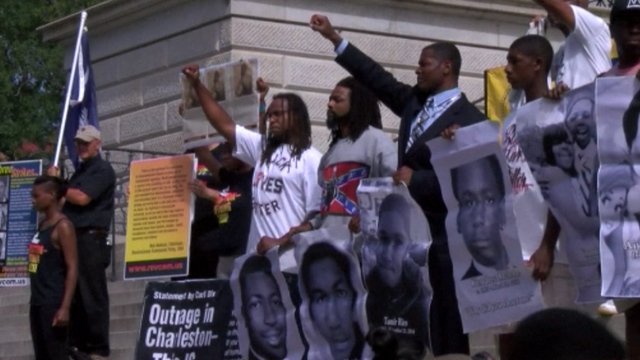
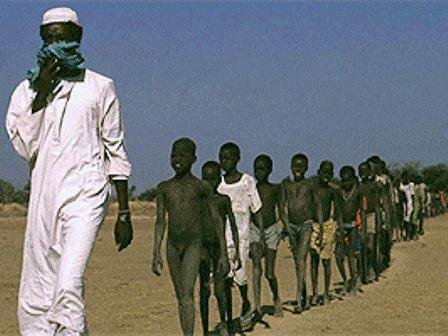
I did get that some people against the Civil Rights used the Rebel flag, but they used the American flag and burning crosses as well. I wonder why folks can't look at the bigger picture to see that the American flag and the cross are also associated with hatred.
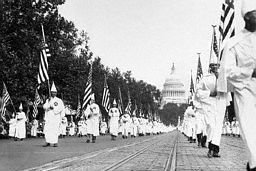
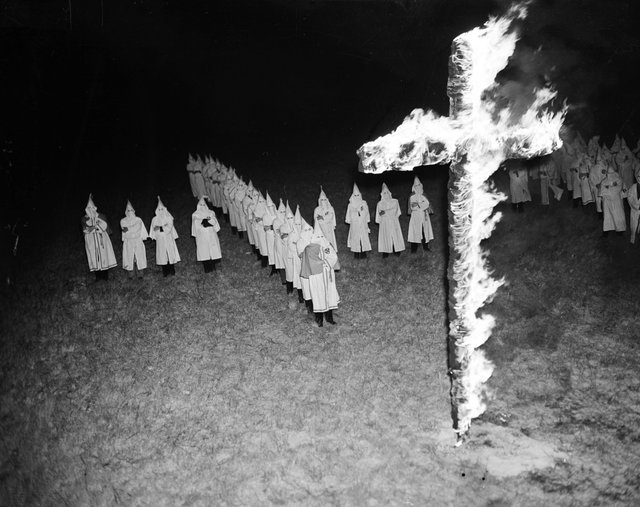
As a Pagan Witch who had millions of her kind burned alive by "people of the cross" i feel grateful that we Witches aren't as filled with hatred about symbols as some others are. It only seems logical that those who insist on hatred because of past events could shift their energy to hating what is still happening and look for solutions to help modern day slaves.


